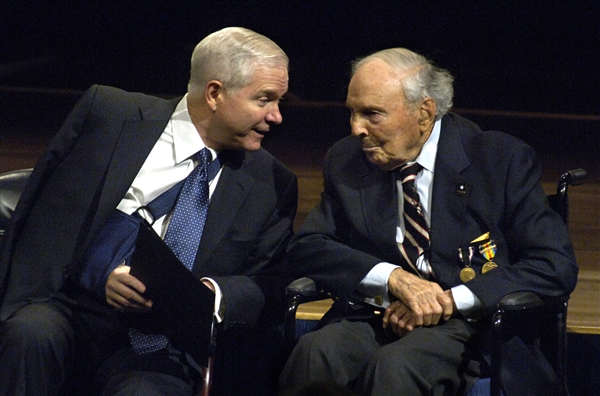Leaders of South Korea and the United States have agreed to delay Seoul’s scheduled takeover of wartime operational control of its troops to Dec. 1, 2015, pushing back the transfer date three years and seven months.
The decision was made at a meeting between presidents Lee Myung-bak and Barack Obama before the Group of 20 financial summit on June 26.
The two leaders also discussed security issues and North Korea’s recent provocation, government officials said.
When the Korean War(1950–53) began, South Korea handed over peacetime and wartime operationa control of its soldiers to the U.S.-led United Nations Command, after which the South Korea‑U.S. Combined Forces Command gained the authority.
In 1994, Seoul regained peacetime control and the Roh Moo-hyun administration struck a deal with Washington in 2007 that Seoul would command its troops in wartime starting April 17, 2012.
Seoul and Washington have been discussing about the wartime operational control takeover issue since May last year when both sides recognized the adjustment of the schedule of the transfer.
The Lee administration has said an altered security environment on the Korean Peninsula made the transfer of authority inappropriate. Since the agreement in 2007, North Korea conducted a second nuclear test in May 25 of last year.
South Korean Defense Minister Kim Tae-young and the U.S. Defense Secretary Robert Gates agreed in October last year during the 41st South Korea‑U.S. Security Consultative Meeting that they would discuss about the transition while monitoring the North’s movement and its threats and talk over the matter in the military commission meeting.
In addition, civic groups related to security in South Korea have also urged the delay of the operational control. They said that the South Korea‑U.S. alliance could be weakened if the troop control is transferred as it is scheduled. Civic groups concerned of security vacuum that could be widened in case of early transition.
Now that a new date has been chosen, Lee and Obama agreed to order their defense policy makers to map out a new transition plan as well.
Defense and foreign affairs ministers of the two nations will meet in July. The two presidents said they expect the meeting to bolster their alliance.
In a press briefing, Kim Sung-hwan, Blue House senior secretary for foreign affairs and security, said that Seoul is able to secure its own intelligence gathering ability, strategic command and communication system and precision bombing skills by 2015. Kim added that the establishment of the ground operation command and the relocation of the Yongsan base to Pyeongtaek, Gyeonggi, is slated to be completed in 2015.
Kim rejected some liberal politicians’ views that Seoul was abandoning its “military sovereignty.” He also dismissed speculation that Washington had requested something in return for agreeing with Seoul’s request.
Currently, South Korea is relying on American KH-11 military satellite, U‑2 and RC-135 reconnaissance aircraft and Aegis-equipped warship in gathering intelligence related to Pyongyang’s movement.
However, Seoul is planning to spend 100 billion won ($81.4 million) to build electromagnetic pulse, Guided Bomb Unit 28, Joint Air to Surface Standoff Missile and Joint Direct Attack Munition by 2014.
South Korea is also planning to create operational unit that is equipped with alert radar by 2012 that could detect North Korea’s intention to fire ballistic missiles.
Defense minister Kim Tae-young had called the scheduled transition in public “the worst case scenario for the military” because the North could bolster its nuclear capability by 2012.
Source:
Ministry of National Defense[MND], Republic of Korea

 von
von 